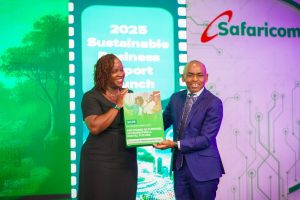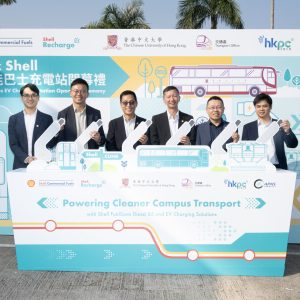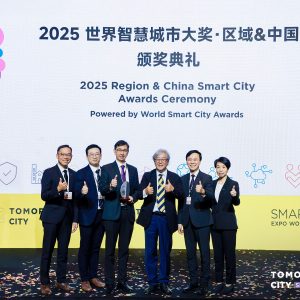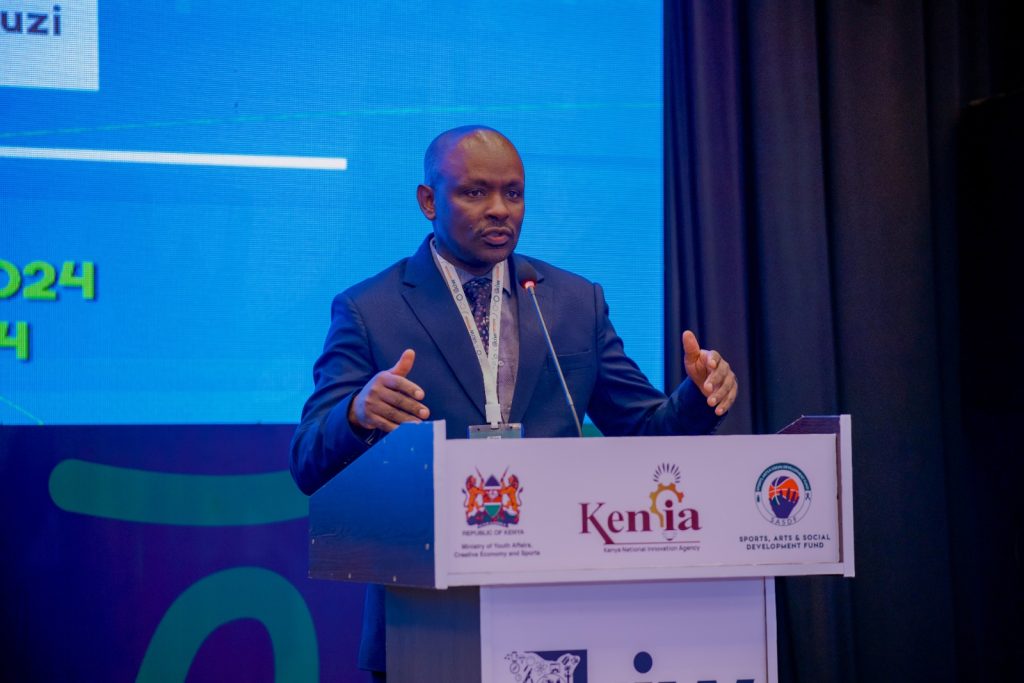
Dr.Tonny Omwansa,CEO.Kenya National Innovation Agency (KeNIA)
Since its inception in 2013, the Kenya National Innovation Agency (KeNIA) has been making strides in cultivating a thriving innovation ecosystem in Kenya. It achieves this by building smaller ecosystems within communities and institutions that support the generation and nurturing of ideas through capacity development and linking them to essential resources.
Dr. Tonny Omwansa, KeNIA’s CEO and first employee, has spearheaded the agency’s growth from the ground up.
KeNIA’s core function, as defined by its parliamentary mandate is to coordinate, promote, and regulate innovation within Kenya.
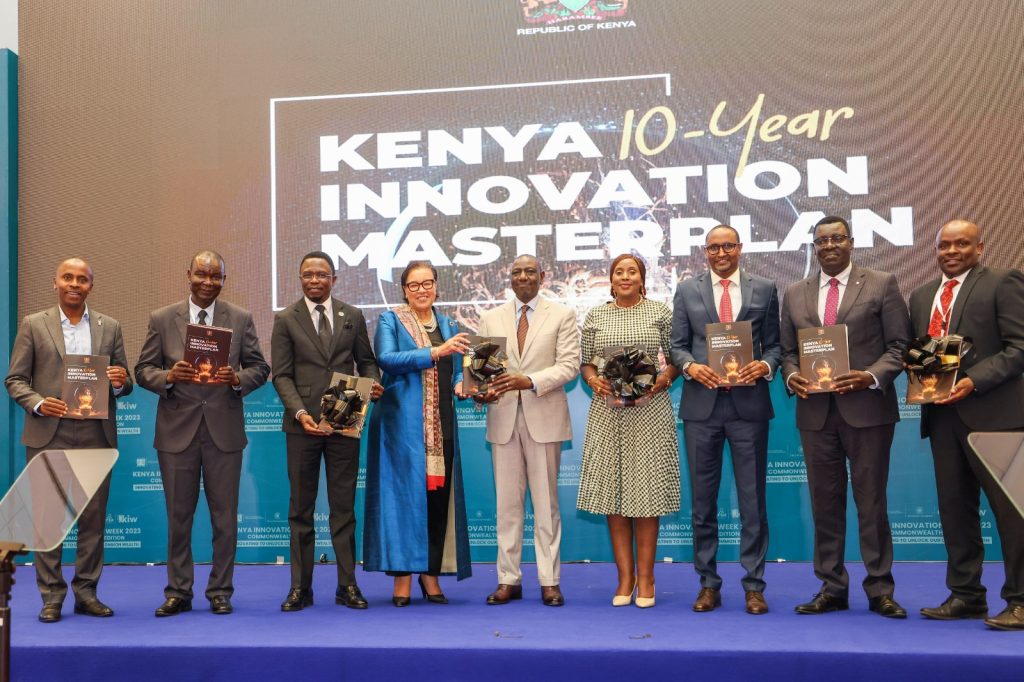 “Our job is not to create innovations. Our true purpose is to develop and manage the national system of innovation.
“Our job is not to create innovations. Our true purpose is to develop and manage the national system of innovation.
Innovations inherently originate from individuals, and you need to create conducive environments for people to come up with innovative ideas and nurture them to commercial viability or adoption in society for impact. So our job is to make sure that people innovate,” Dr. Omwansa noted.
KeNIA operates on the principle that innovation thrives where ideas are nurtured, teams are strong, and policies are supportive. Dr. Omwansa maintains that a good idea is one that solves a problem or adds value to people’s lives.
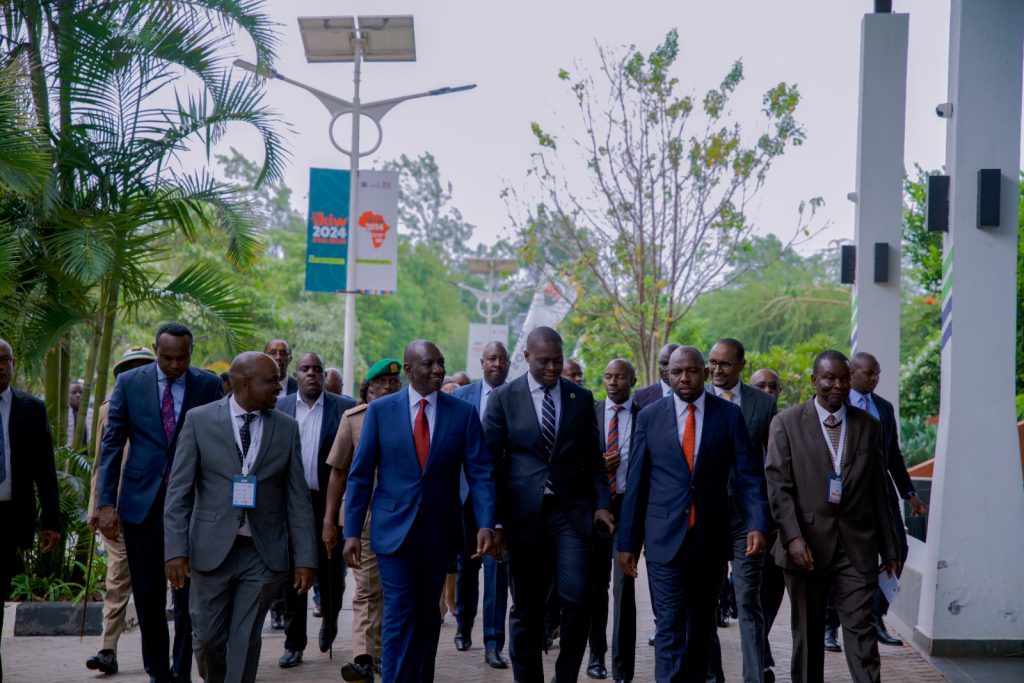 “Innovative ideas are only valuable if they solve a problem or add value to people’s lives. For instance, imagine an incredibly light umbrella that disappears into your bag.
“Innovative ideas are only valuable if they solve a problem or add value to people’s lives. For instance, imagine an incredibly light umbrella that disappears into your bag.
With the press of a button, it instantly shields you from rain, eliminating the discomfort of getting wet and the burden of carrying something heavy.
That’s the kind of innovation people want,” he explained.
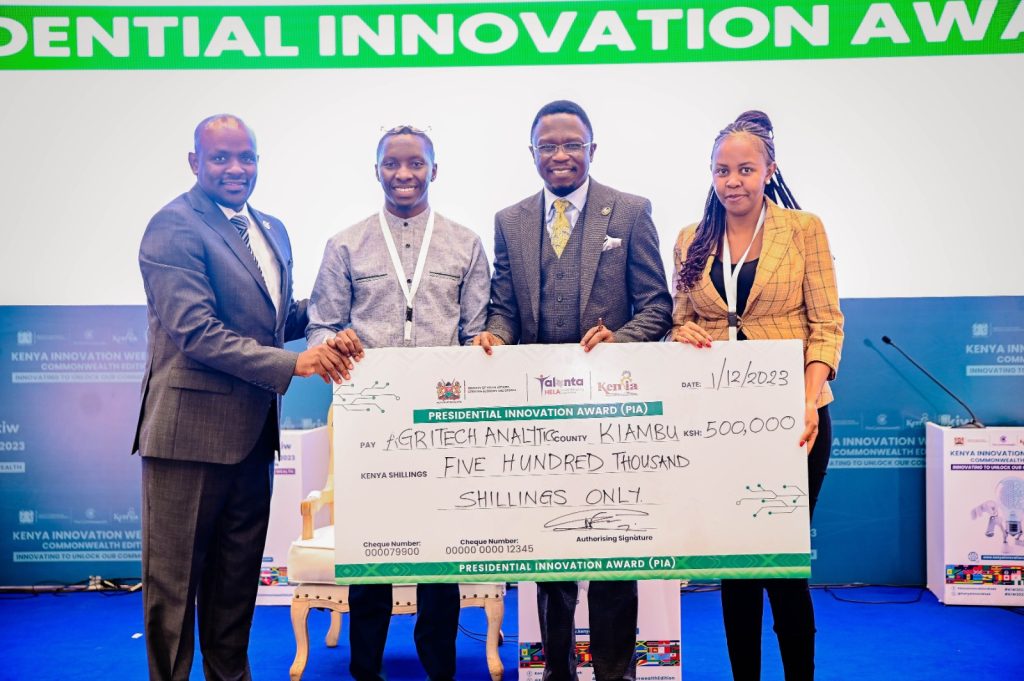 He says that the agency is seeking ideas that have been documented and are applicable in real-life situations.
He says that the agency is seeking ideas that have been documented and are applicable in real-life situations.
“Once you can document your idea and demonstrate its fundamentals, have it validated to solve actual problems for its targeted audience, and we can see its alignment to the national development goals. You become a strong candidate for support through selected programs run by KeNIA,” he stated.
He stresses the importance of mentorship, incubation programs, and counselling to bring ideas into material products or services.
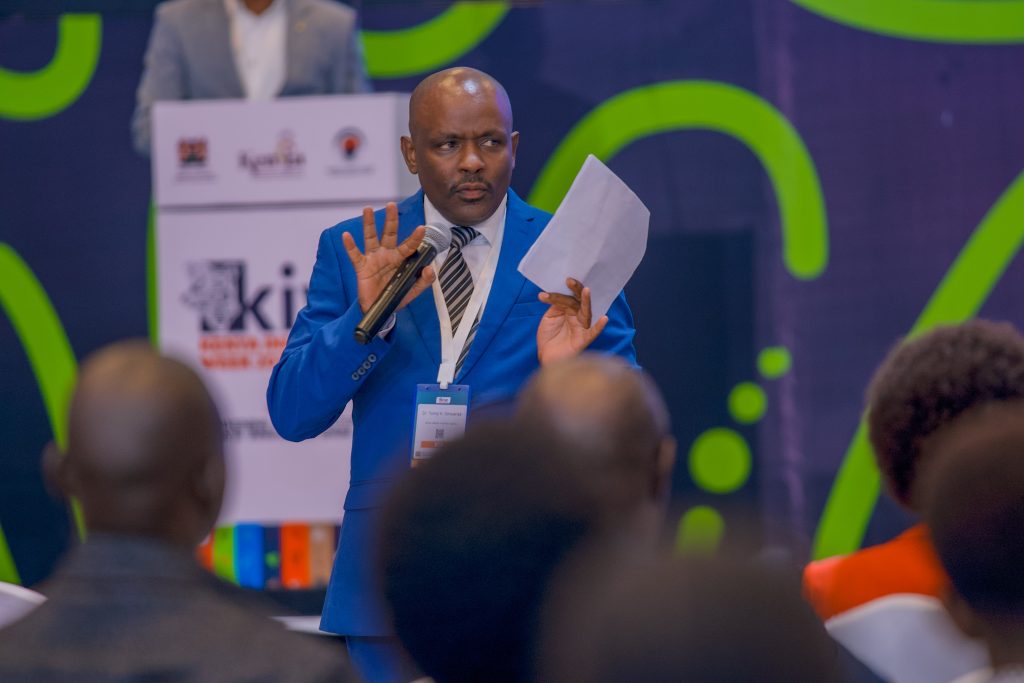
“Having an idea is one thing, and knowing what to do with it is another thing. It also succeeds because you’ve got good incubation programs that guide you on how to develop an idea further for it to advance. It means that you must have complementary skills in your team.
Because you can be an engineer, but not necessarily a marketer,” Dr. Omwansa said.
KeNIA’s work embrace diversification which include various programs and activities such as Research to Commercialisation (R2C) Accelerator and Kenya Start-Up School to train early-stage founders and entrepreneurship trainers.
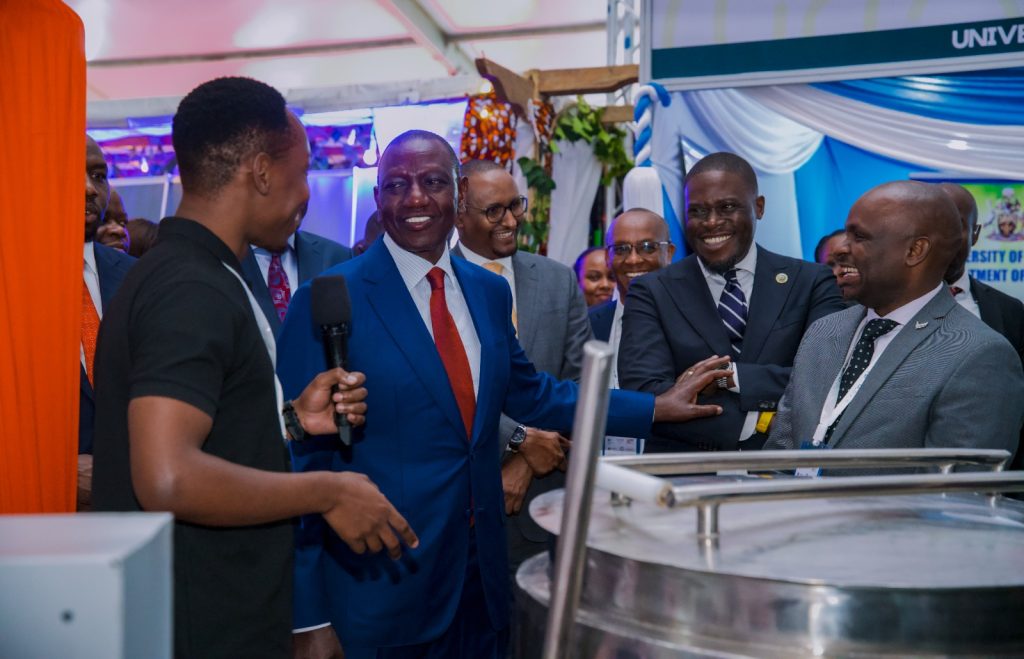 “Our Start-up School trains early-stage Kenyan entrepreneurs to transform innovative ideas into scalable ventures and manage them effectively.
“Our Start-up School trains early-stage Kenyan entrepreneurs to transform innovative ideas into scalable ventures and manage them effectively.
We also offer entrepreneurship training for educators, focusing on best practices for mentoring founders. Additionally, our Research to Commercialisation (R2C)Accelerator guides individuals with innovative research from universities and centers, helping them transform their findings into viable businesses,” he added.
Among other programs is the Presidential Innovation Challenge and Award that recognises and rewards innovative ideas countrywide, with top prizes reaching 5 million Kenyan shillings.
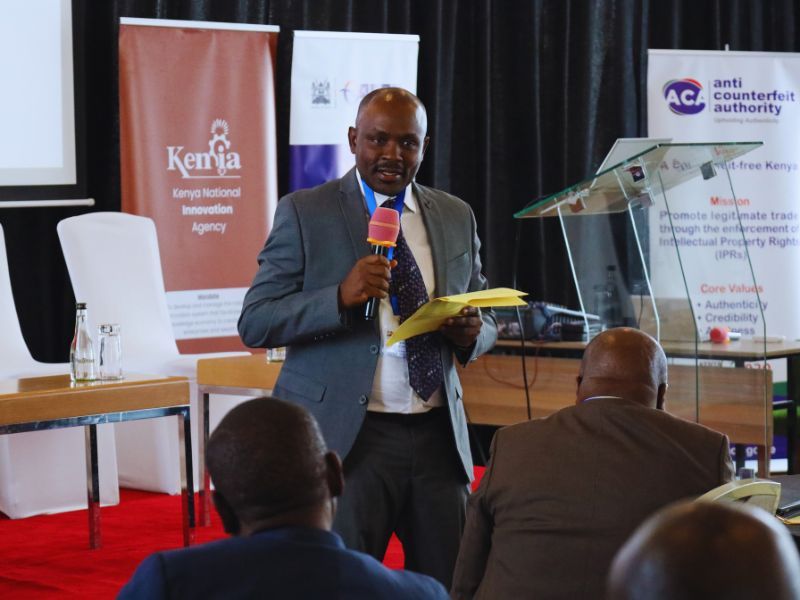 “A key initiative is our Presidential Innovation Challenge and Award. In this program, we invite innovative ideas from all over the country, conduct independent evaluations, and then acknowledge and reward the most promising and progressive innovations,” he explained
“A key initiative is our Presidential Innovation Challenge and Award. In this program, we invite innovative ideas from all over the country, conduct independent evaluations, and then acknowledge and reward the most promising and progressive innovations,” he explained
Another key part of KeNIA’s approach is working with the private sector.
Dr. Omwansa said that private sector involvement is vital when it comes to scaling innovations.
“Innovations hardly scale by themselves or with government support alone,” he stated.
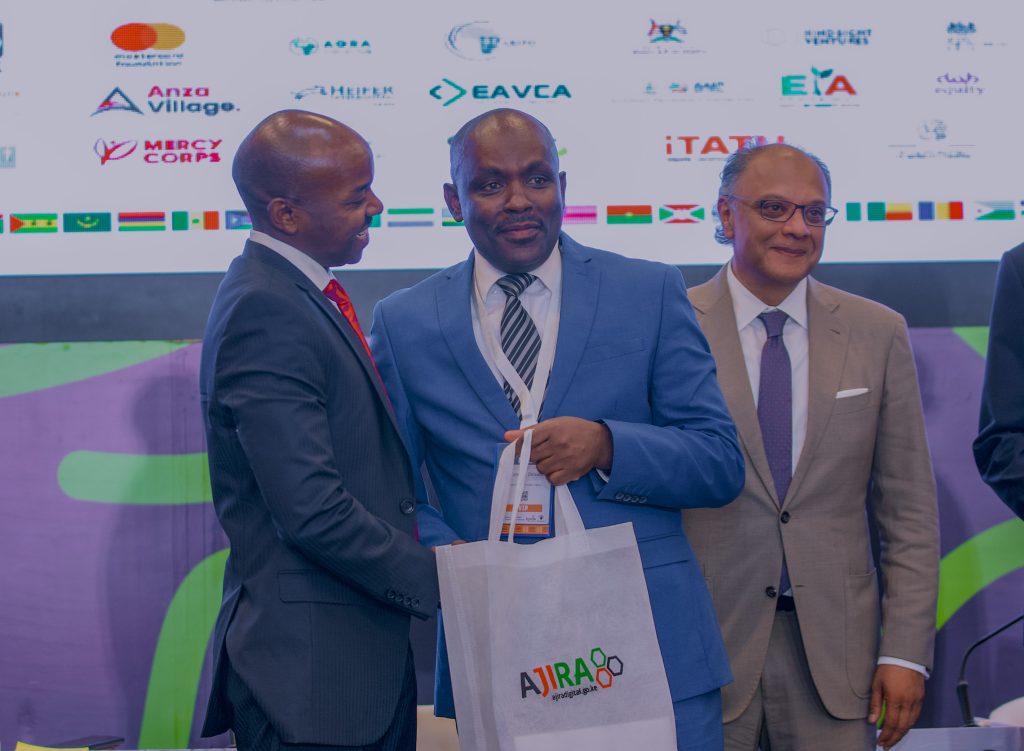 KeNIA acts as the catalyst, derisking initial-stage innovations using grants awarded to innovation challenge winners, facility access, and training, making them more attractive to private investors, he said.
KeNIA acts as the catalyst, derisking initial-stage innovations using grants awarded to innovation challenge winners, facility access, and training, making them more attractive to private investors, he said.
He noted that the agency will use a matching fund scheme in the near future, to encourage innovators to initially attract private investment before receiving government funds, further strengthening this worthwhile partnership and resource mobilisation capacity of the innovators.
He further added that monitoring the effectiveness of KeNIA’s activities is a difficult task.
 The agency employs various metrics, including global innovation rankings, changes in universities and research institutions following the implementation of KeNIA’s training ideas, investment attracted by start-ups, and tax revenues generated by new enterprises.
The agency employs various metrics, including global innovation rankings, changes in universities and research institutions following the implementation of KeNIA’s training ideas, investment attracted by start-ups, and tax revenues generated by new enterprises.
“Measuring our long-term impact is complex, but we utilize several methods.We track our progress against global benchmarks like the Global Innovation Index.
Additionally, we assess the transformation within institutions following KeNIA’s interventions.For instance, when we engage with universities or TVETs, we have mechanisms to measure their innovation growth, including improvements in their policies and incentives,” he reiterated.
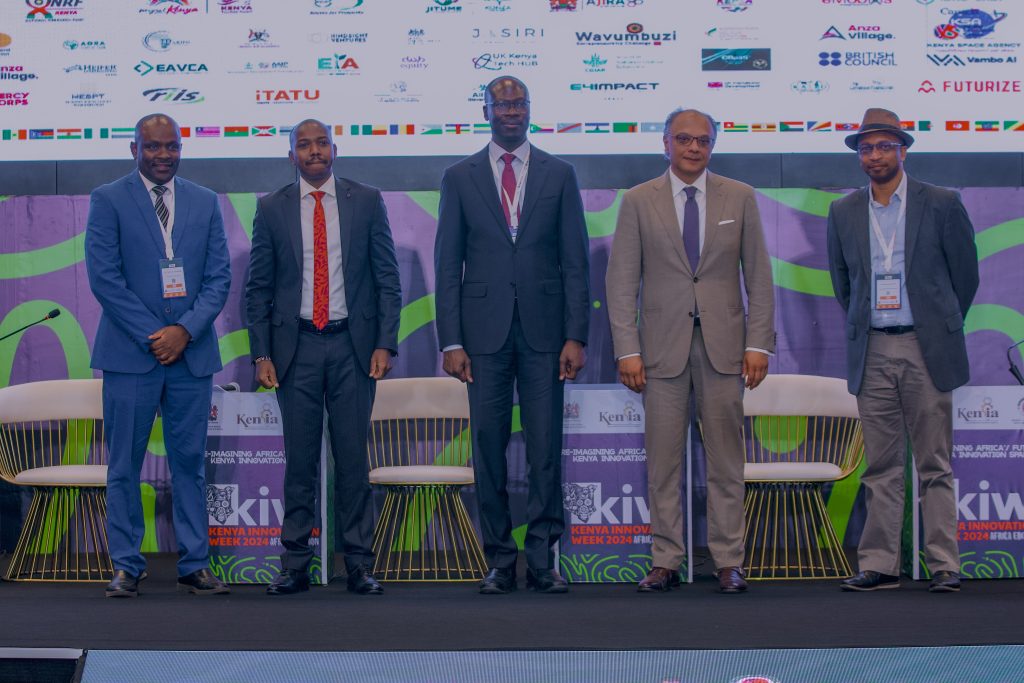 Dr. Omwansa also highlighted the crucial role of education in fostering innovation.
Dr. Omwansa also highlighted the crucial role of education in fostering innovation.
He believes that the more critical thinkers the education system produces, the more likely Kenya is to generate high-value innovations.
KeNIA Successes
As an organization, it has had to build its systems, recruit talent, secure funding, and educate the public about the importance of innovation.
“I’ve been in this role for just over four years.When I started, I was essentially alone, building everything from scratch. That meant developing systems, acquiring human capital, recruiting staff, securing funding, and designing programs to begin our work within the ecosystem,” he explained.
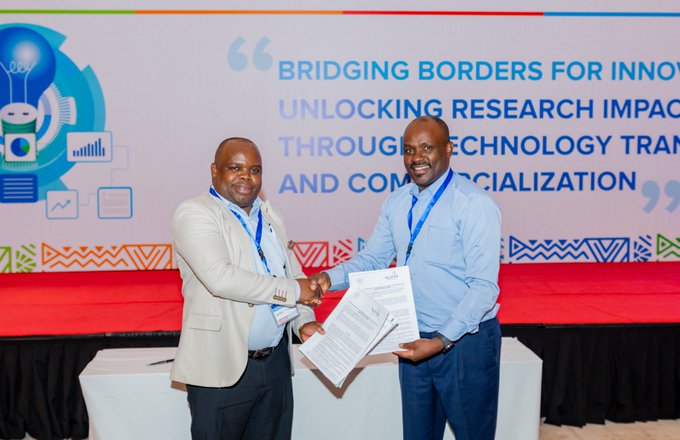 Another priority is reaching local communities.
Another priority is reaching local communities.
KeNIA is working to expand its reach through partnerships with local institutions, plans to hire local officers, utilizes online media for program applications, and is developing the “Innovation Mashinani” program to drive innovation in rural areas.
Summarily, KeNIA offers diverse programs such as supporting institutional research commercialization, developing innovation policies and strategies for various organizations, orchestrating an annual startup festival and innovation week, delivering extensive innovator training, and assessing innovation progression at both institutional and national levels.
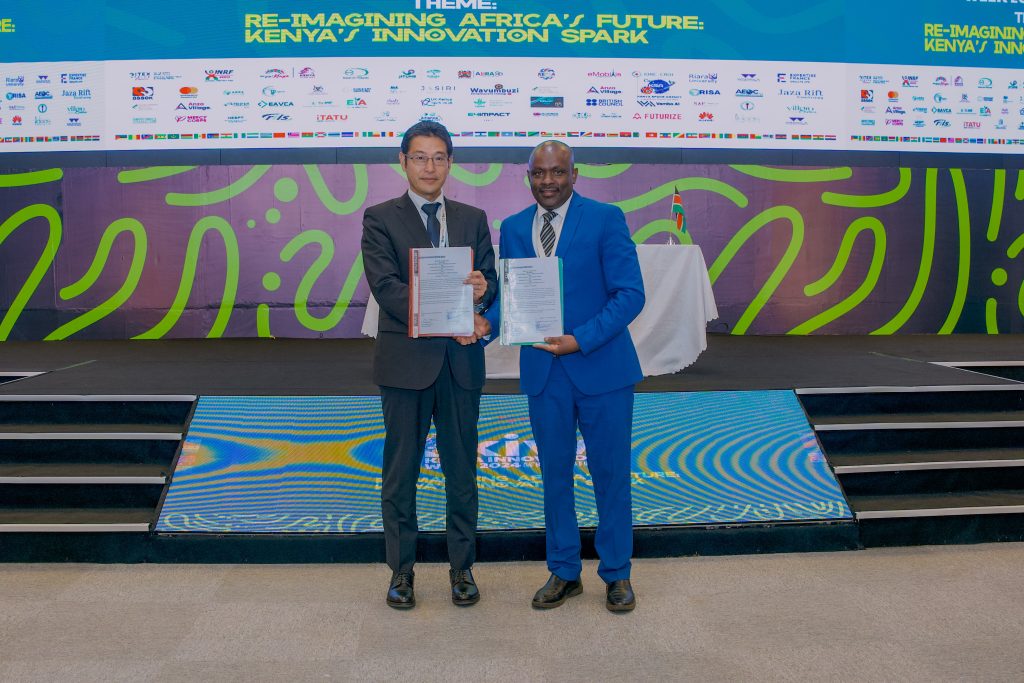 “We partner with institutions across various counties. Our HR team is actively recruiting regional officers to provide direct, local support within these institutions.
“We partner with institutions across various counties. Our HR team is actively recruiting regional officers to provide direct, local support within these institutions.
We’ll coordinate closely with them to ensure essential assistance. Our programs operate both locally and nationally, showcasing the power of innovation.
To that end, we’re launching an innovation channel to source ideas nationwide via an open online application process,” he said.
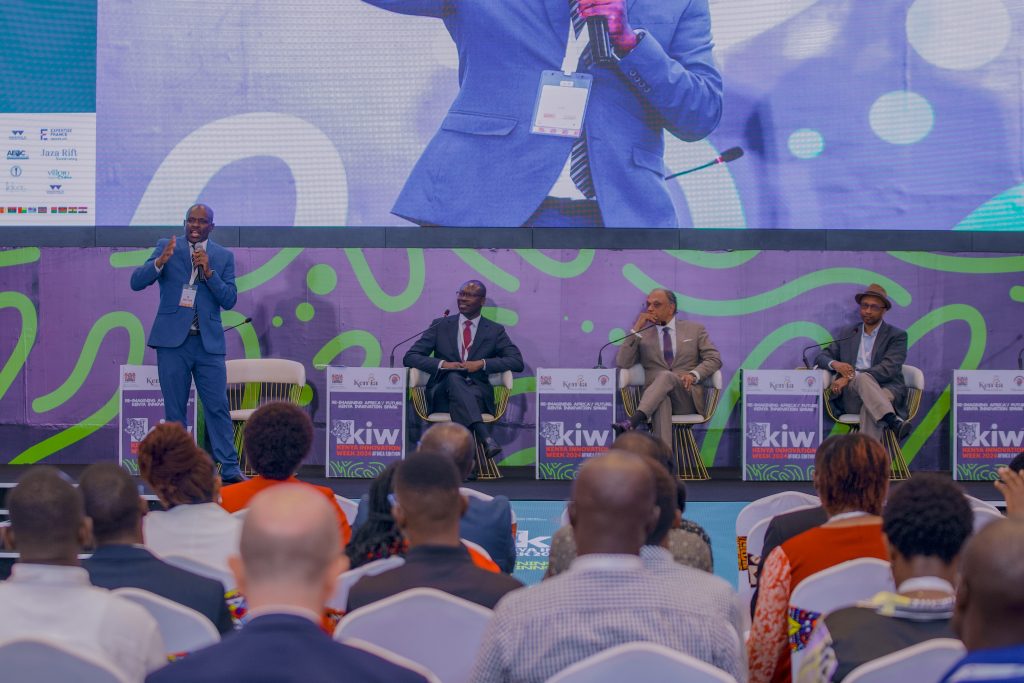 Dr. Omwansa’s personal vision aligns with KeNIA’s mission: to develop and manage a dynamic national innovation system that catalyses jobs and wealth creation.
Dr. Omwansa’s personal vision aligns with KeNIA’s mission: to develop and manage a dynamic national innovation system that catalyses jobs and wealth creation.
He aims to improve lives through innovative solutions and create a nation of innovators.
“The Innovation Agency’s purpose is to create jobs and wealth by leveraging innovative ideas.
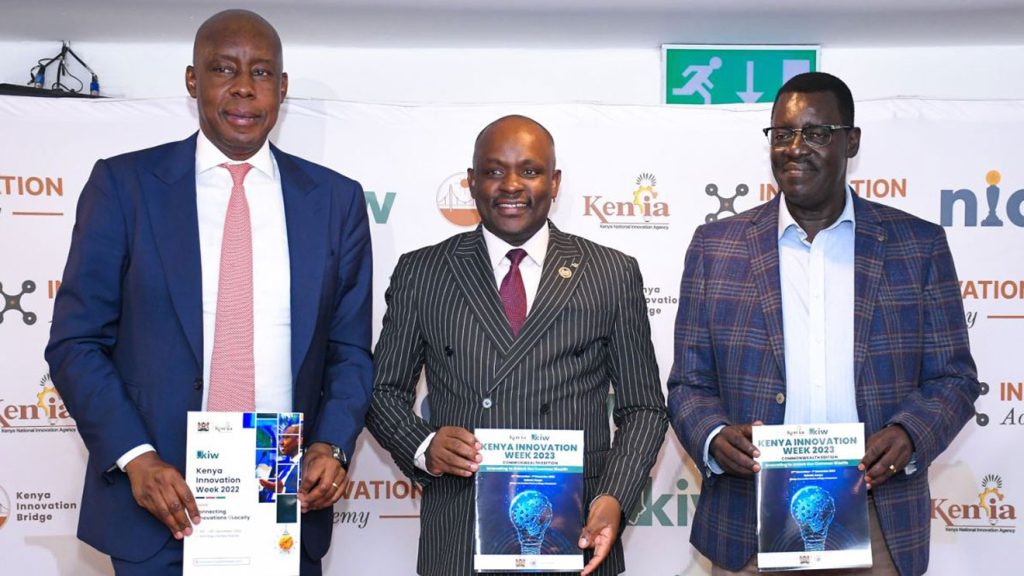 To achieve this, we need a significant institution –robust in size, expertise, and manpower – to support the commercialization of the knowledge economy,” stated Dr. Omwansa.
To achieve this, we need a significant institution –robust in size, expertise, and manpower – to support the commercialization of the knowledge economy,” stated Dr. Omwansa.
.

